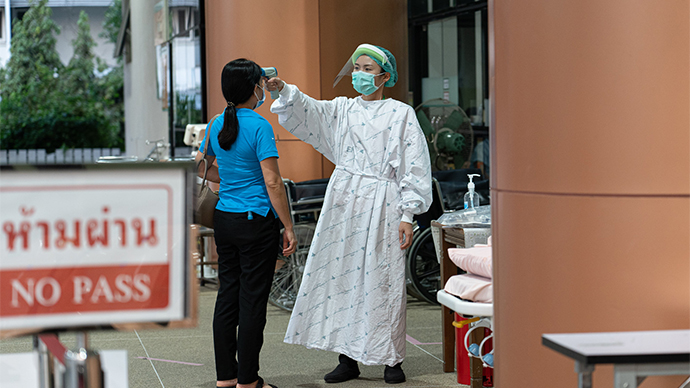There is an ongoing debate regarding how best to prevent future pandemics. Some, like Bill Gates, are arguing that “we need to prepare to fight disease outbreaks just as we prepare to fight fires.” This would require an infrastructure for constant surveillance, and a well-funded “fire department for pandemics” that could provide rapid response to douse conflagrations (Gates, 2023). This view is proving enormously influential in many global health institutions.
However, the fire-fighting paradigm is based on an inadequate understanding of how to secure the world from future pandemics. We definitely need some fire-fighting capacity, but it has to be in a judicious balance with the more important investments in building broad-based public health systems that can prevent many fires from breaking out in the first place. I have argued elsewhere that the fire-fighting approach conceptualizes preparedness too narrowly. Simply “the availability of a technical infrastructure to detect emerging infectious diseases and prevent their contagion is insufficient. The current pandemic has starkly revealed the importance of political institutions, societal solidarity, and a Rousseau-ian general will in determining a country’ s pandemic response” (Mahajan, 2021). What is needed is a conceptualisation of global health security that explicitly foregrounds the role of broader social and political drivers underlying public health.
An important site to learn from are countries, such as in Southeast and East Asia, that have had significant success in curtailing morbidity and mortality through the pandemic. No single reason - such as authoritarian governments, experience with past epidemics, or national cultures - explains their success. After all, these countries span different political regime types, cultures, and economic systems. Understanding their successful pandemic responses demands a consideration of a complex constellation of historical, political, and economic factors that undergird robust public health systems.

And yet, accounts of how accessible and effective public health systems have been built in regions of the world such as Southeast and East Asia are strikingly absent from the field of global health. The field has been marked by a privileging of donor-led, single-disease, vertical programs. Accordingly, scholarship, both in critical and celebratory veins, has focused on analyzing such targeted approaches. Of course, there have been periodic exhortations for universal and primary healthcare; nonetheless, much of critical scholarship has dwelt on what donor-driven vertical programs have gotten wrong rather than studying alternative paradigms. An ironic consequence of this type of critique is that there is a relative paucity of English-language scholarship on Asian countries that haven’t followed western donor-driven templates.
Ameliorating this gap in global health scholarship would mean giving prominence to histories, political economies and sociologies of public health systems in countries like Vietnam, Thailand, Japan, Taiwan, and South Korea, to name but a few. What were the different political imperatives and social histories that led to building of broad-based public health systems? What were institutional histories that facilitated decades-long investments in accessible and equitable primary healthcare? What kinds of state capacity have been critical for sustaining health systems and also a more capacious well-being of populations?
At The New School’s India China Institute, we are starting a project that seeks to address these questions and diversify the scholarship that animates the field of global health. We will be initiating a year-long, virtual seminar series with fellows who work on historical and contemporary analyses of public health systems in a range of countries in Southeast and East Asia. We are especially interested in scholars who will undertake studies of social and political determinants of health; histories and political economies of public health institutions and policies; diffusion of expertise between countries in the region; the role of national intellectual property regimes; and the role of social movements and civil society organizations. We hope that the resultant conversations on alternatives will redress systematic silences in global health scholarship and simultaneously reframe the understanding of pandemic preparedness – as being less about fire-fighting and more about the building of resilient public health systems.
References
Bill Gates, “I Worry We’re Making the Same Mistakes Again.” New York Times, 19 March, 2023.
Manjari Mahajan, “Casualties of Preparedness: The Global Health Security Index and COVID-19,” International Journal of Law in Context, 17, 204-214.





